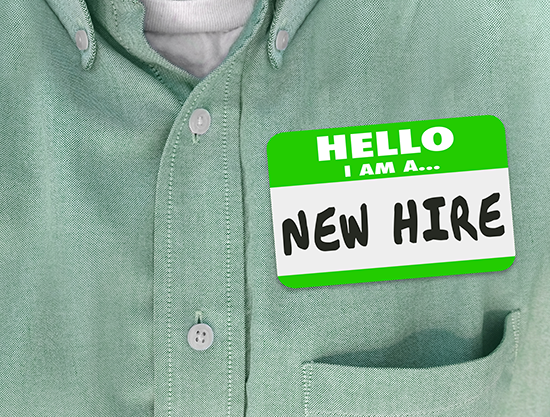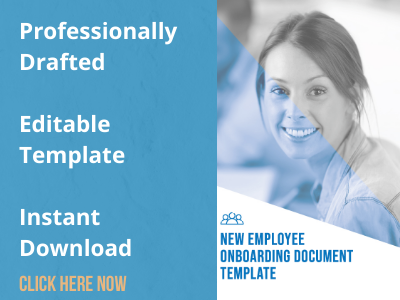Travelling is one of the great pleasures in life. New places, new food, and the adventure of making the strange familiar. When I arrive at my hotel, I check out the welcome pack. It gives me the lay of the land and tells me how to locate the important facilities.
Starting a new job can be like travelling to a foreign land. You must get used to a new culture and rules and work out the way things are done.

Employers can make their workplace less strange by supplying a Welcome Pack or Onboarding documents. This information lessens the mystery of the new workplace and helps your new employee acclimatise more quickly. This means they can feel more relaxed and do their job more effectively sooner.
Utilising an effective onboarding system saves you (or your administration support) time. It protects you against forgetting to tell your new employee something important. And it helps you avoid misunderstandings, confusion and conflict over miscommunicated information. This may be especially sensitive in the financial spheres.
But what do you include in your Employee Welcome or Onboarding Pack?
Ideally, you should tailor onboarding documents for your workplace. It’s a system for recording and sharing information which can be used for multiple employees.
The list below outlines some of the issues that you can cover in onboarding documents. Choose the ones that are apply to your workplace or business.
Two main areas (A and B) are required to be covered at the beginning of the new employee’s journey:
A. Your Company Internal Rules, Procedures and Policies (Workplace Policies)
Company Values
A description of your company’s Shared Values, attached Code of Conduct, Dress Code or other codes and also mentioning any Workplace Discrimination/Violence procedures and Correction/Problem Solving steps.
Timekeeping
Setting the Attendance Schedule time, any shifts, breaks, holidays and vacation information as well as possible overtime and overtime payments and paid time off (PTO), if any in place.
Company Internal Information
Establishing confidentiality standards, including rules of communication with the outside market (consumers, competitors, suppliers), email, social media/networking.
Travel Policy
Possible business travel regulation and compensation practices – are you paying for the taxi, what the daily allowance amount is and what the expenses reimbursement procedures are.
Company Property Equipment
Any types of computers, laptops or mobile phones, company cars, other company property/equipment – rules of usage, cost reimbursement (are you paying for private calls or private car usage?) and replacement regulations. Office norms – suppliers, mail, facilities.
Health and Safety
Mentioning H&S rules and regulations, special equipment or uniform usage, alcohol/drug testing if applicable.
Compensation
Any compensation that the company gives to the employee using his own resources in company purposes (f.e. mobile phone or car).
Benefits
Any benefits that are provided by the company, including meals, private medical care, gym or company products discount.
It’s also useful to ask for the signature on: “I have read, understood and accepted the above”, to avoid future disagreements or misunderstandings.
B Information from the new employee
- Home/Postal Address Details
- Emergency Contacts
- Bank Details
- Tax File declaration
- Superannuation Choice Form
- Medical/health questionnaire (if appropriate or required by legal standards)
- Any information the new employee thinks is important to share
When you initially consider onboarding documentation it can look like plenty of paperwork. But you don’t have to create it from scratch. You can use templates created by HR professionals which you can edit to suit your business. This saves you an enormous amount of time, cost and effort.
Steps for Onboarding
Once you have your onboarding Pack, just follow these steps
- have your employee complete the questionnaire
- give your employee the workplace policies and discuss
- show them the facilities
- introduce them to other staff
Types of Employee templates
We provide the following professionally drafted employee templates.

